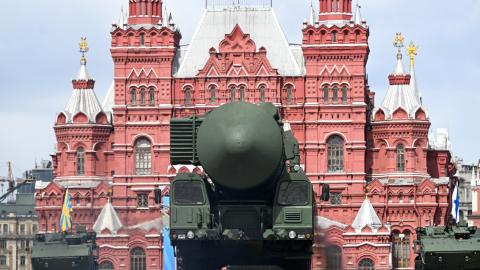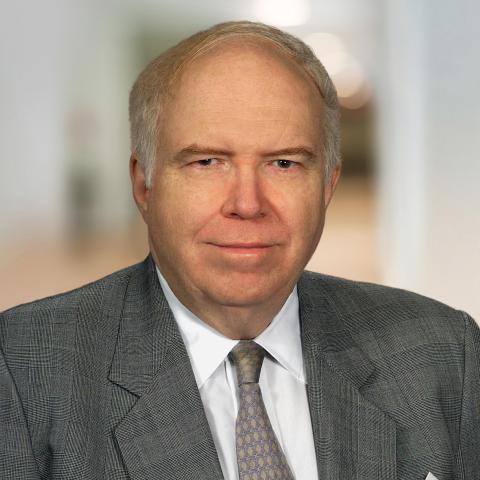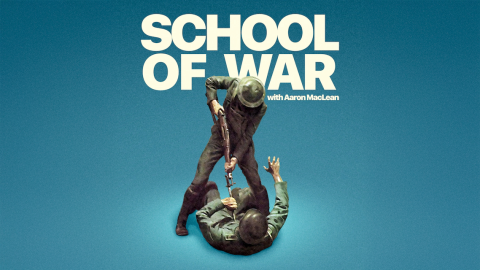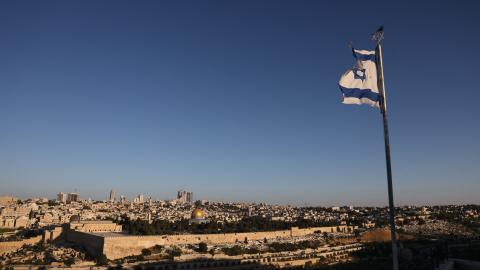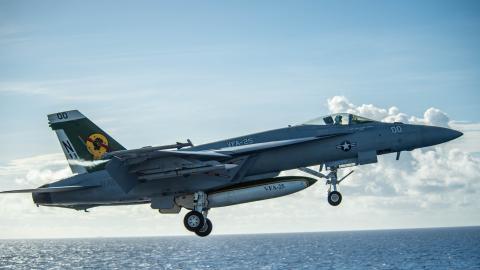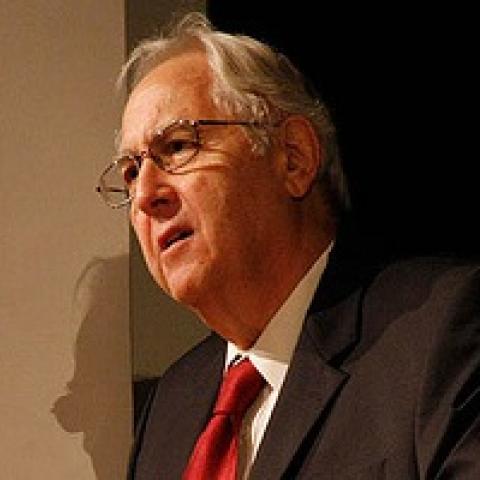As a critic of President Obama’s opening to Cuba, last week I wrote that “Obama is a man who just can’t say no to tyrants.” Obama’s project has had many other critics. Rich Lowry points out in National Review that Obama’s trip “means extending credibility and a financial lifeline to a Castro regime that has no intention of reforming.”
Walter Russell Mead argues in The American Interest that Obama’s trip to Cuba is taking place for one reason alone: The Castro brothers know that socialism has failed, and the only way to prevent a total collapse of their regime is to make peace with the once hated “Yankee oppressor.” Once Cuba was propped up by the Soviet Union, and later by Venezuela, but that era is over. In agreeing to this opening with America, the Castro brothers hope for their regime’s survival, but Mead believes that integration with the U.S. economy will eventually lead to the collapse of their rule.
It is in this context that one must evaluate Obama’s historic speech to the Cuban people, given Tuesday morning. The speech Obama delivered deviated from the text of his speech that had been handed out to the press beforehand. That is possibly why Raul Castro sat listening stone-faced in the first balcony facing the stage. Had he seen in advance what Obama would be saying, he might have cancelled the live television feed throughout Cuba.
Obama began by saying that he had come to Cuba “to bury the last remnant of the Cold War in the Americas … to extend the hand of friendship to the Cuban people.” He began with soft homilies -- how the U.S. and Cuba share “common values, “a sense of patriotism and a sense of pride … a profound love of family. A passion for our children.”
These are, of course, things that all people share, and say little about the real differences between the U.S. and the Castro regime. But Castro must have been shocked when Obama praised those Cubans who had fled to America on planes and makeshift rafts “in pursuit of freedom and opportunity, sometimes leaving behind everything they owned and every person that they loved.” (Castro’s term for such people are “gusanos” or worms.)
Later in the speech he delivered another surprise, praising the initiative and work ethic of the Cuban people. He was not referring to the Communist regime. Instead, Obama said, there is a “clear monument to what the Cuban people can build … [and it] is called Miami.” Eluding to Cuba’s dismal economy, Obama said: “American democracy has given our people the opportunity to pursue their dreams and enjoy a high standard of living.”
Obama said that real differences between the two countries could not be ignored:
Cuba has a one-party system; the United States is a multi-party democracy. Cuba has a socialist economic model; the United States is an open market. Cuba has emphasized the role and rights of the state; the United States is founded upon the rights of the individual.
He repeated that while he favored lifting the embargo and has recommended that Congress do this, even if the embargo was lifted “Cubans will not realize their potential without continued change in Cuba.” That meant access to information available online, which now Cubans are not permitted to get. “If you cannot be exposed to different points of view,” Obama told the Cubans, “you will not reach your full potential, and over time the youth will lose all hope.”
Of course, this is already the case, as virtually all reporters note. That is the very reason more Cubans are fleeing by raft and by airplane and by foot after taking allowed trips to Central America. The past year alone has seen a great exodus of Cubans fearful that Obama’s new opening to Cuba might in fact lead the U.S. to change its favorable immigration policies towards Cuban immigrants.
Addressing critics who say that Cubans will not benefit from American investment, he acknowledged that when Cuban workers in foreign projects and hotels get paid their wages go to the state, which then gives the workers their salary in useless pesos. A worker, Obama said, “should be able to get a job directly with companies who invest here in Cuba. Two currencies shouldn’t separate the type of salaries that Cubans can earn.”
It was unprecedented, the New York Times observed, that Obama “made a passionate argument for democracy and free-market principles.” He affirmed his own belief in the right to protest, to practice freedom of religion, and emphasized the necessity of free and democratic elections. To make this palatable to Castro without completely embarrassing him, the president added that the United States did not want to “impose our political or economic system on you.” Regime change, in other words, is no longer the objective of the United States. And change, if it comes, Obama argued, “will depend on the Cuban people,” not on the United State imposing its system on Cuba.
Obama acknowledged that the U.S. still has “enormous problems. … But democracy is the way we solve them.” He discussed the long, hard-fought struggle for civil rights and how positive changes had been made over time through the democratic process. Pointing to himself, he said that when he was growing up it would have been inconceivable that a mixed race son, raised by a single mother, would one day be president of the United States.
So how does one evaluate the mixed messages he was giving?
Critics of Obama will emphasize his failure to mention those imprisoned by name, to call out Raul Castro for his continuing arrest, beating, and harassment of dissenters, and the torture prisoners receive once they are in the prison system. Defenders of President Obama will point to his defense of a free market system and democracy, his strong affirmation of the need to hear all points of view, and his emphasis on Americans valuing the individual rather than the state.
Rather than disparage America, it was, for him, a remarkably pro-American speech. It is not the kind of speech which I and others thought Obama would make. At times I thought I was listening to George W. Bush advancing his democracy agenda. There were no apologies for America’s past actions; he referred only to both countries having been “shadow-boxers in this battle of geopolitics and personalities.” Obama then told the Cuban people his own thoughts:
I believe citizens should be free to speak their mind without fear -- to organize, and to criticize their government, and to protest peacefully, and that the rule of law should not include arbitrary detentions of people who exercise those rights. I believe that every person should have the freedom to practice their faith peacefully and publicly. And, yes, I believe voters should be able to choose their governments in free and democratic elections.
These are words that Raul Castro did not expect to hear, and he barely managed to give a limp clap at the end. After saying the U.S. was no longer trying to achieve regime change, Obama in effect said that the Cubans themselves must resist their government and work towards democracy. As for the regime, he had forcefully said he favors precisely what the Communist leaders will not do. Indeed, Oswaldo Paya, the leader who circulated the Verala Project document demanding democracy, was murdered by Castro’s secret police.
After the speech, President Obama quickly headed over to the American Embassy, where he met with dissidents, including Berta Soler from the Ladies in White, activist Guillermo Coco Fariñas, and Cuban Human Rights and National Reconciliation Commission founder Elizardo Sánchez, who had been recently in prison. It was Sanchez who told the New York Times that he thought there would be a truce by the regime and that it would not arrest dissenters during Obama’s trip. But he noted that “arrests had taken place ‘the moment that Obama was in the air flying to Cuba.'”
For Obama to meet with him and others was clearly meant as a message to Raul Castro, and as reinforcement by the U.S for their cause. “There are people here who have been detained. Some in the past, some very recently,” Obama said. “As I have said consistently, part of our policy with respect to engagement with Cuba is not simply me meeting with President Castro or government-to-government relations. Much of this is a matter of us being able to hear directly from the Cuban people and making sure that they have a voice and making sure that their concerns and their ideas are helping to shape U.S. policy.” Critics of Obama's policy thought that he would not meet with any dissidents. Because he did, and because critics thought that such a meeting would interfere with his chosen course of reconciliation, Obama must be praised for having done so. This step was clearly not one the Cuban regime welcomed.
Rep. Carlos Curbelo (R-FL) said, as the Miami Herald reported, “the president should have made more demands of Cuba. Even so, he praised the speech, calling it ‘a major improvement from yesterday's disastrous joint press conference in which the leader of the greatest nation in the world was subjected to a babbling and cynical lecture from a third world dictator on human rights and social justice.’”
Some dissidents in Cuba did not, as we would expect, respond well to the speech. We must, of course, take their strong objections into our evaluation. Watching it on Cuban television -- itself something unprecedented -- some of them praised the sections on democracy but objected to Obama’s dealing with the regime, which they felt legitimized it. Some, as reported by the local ABC affiliate in Miami, wanted Obama to speak out more forcefully for human rights and repression.
And at yesterday’s press conference, Raul Castro said “what political prisoners?” when challenged by a member of the American press. Here is one list. Perhaps Obama should have named some of them individually and demanded their immediate release. He obviously preferred only to challenge the regime’s ideology, and not to rupture the new reconciliation measures by being so specific. So Obama should indeed be criticized for that.
However, Obama should be praised for his defense of America, of our political democracy and our free market system which has resulted in prosperity. I must say it was refreshing to hear him depart from his usual apologia for America’s past wrongdoing and instead point to the necessity of eventual change in Cuba to be created by a new generation.
Yes, I still think Obama moved to reconciliation without demanding certain changes in advance of a new U.S. policy, and that he gave away too much without demanding anything in return. He should have taken such measures before taking the United States on a new course.
Obama may not have given the exact speech conservatives would have hoped he would give, but it was better than any of us expected. So I praise him for saying what he did. I’m sure Raul Castro and his henchman had a very different reaction.
